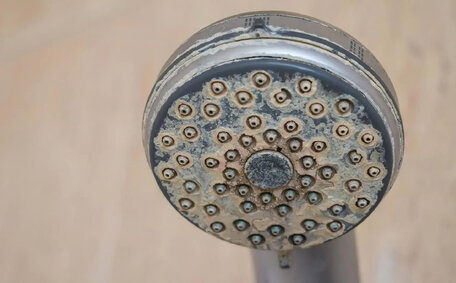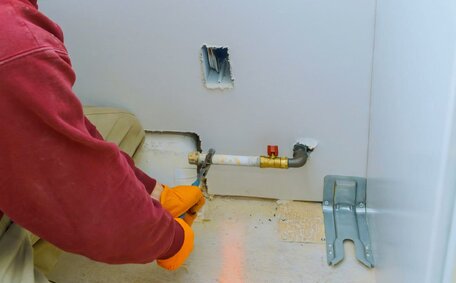Introduction: Gas vs Electric for Heating and Appliances
Homeowners face a crucial decision when choosing how to heat their homes and power appliances: opt for gas, electric, or a hybrid of both? This article explores the critical factors of cost, environmental impact, efficiency, and energy sources, with an emphasis on diverse energy plans. We’ll thoroughly evaluate the pros and cons to help you decide whether gas or electric suits your household better.
Understanding the operating costs and long-term affordability of water heaters and appliances is vital in the context of escalating energy bills. Despite gas’s reputation for cost-effectiveness, technologies like heat pumps are narrowing the cost gap. Weighing upfront system costs against ongoing running expenses in the long run is essential.
Beyond dollars alone, pollution impacts also sway decisions today. Gas heating and cooking generally produce higher carbon emissions, whereas technologies like solar electricity and heat pumps efficiently tap into renewable energy. We’ll look at whether a gas phase-out in your area may shape choices.
It’s also important to consider practical aspects such as hot water flow rates, system installation complexity, indoor air quality, and overall convenience. Taking into account the right energy mix your house relies on is crucial for your situation as it hinges on understanding the variables around cost, sustainability and livability.
Upfront Costs: Installation and Purchase Prices
For new gas or electric hot water system installations, the initial purchase and installation costs are a major factor. Gas systems typically have higher initial costs, offset by lower operational expenses due to the complexity of installation.
The average price for installing a standard gas storage tank hot water system is around $2,200 including parts and labour, whereas a comparable electric storage heaters system averages around $1,700. Other estimates put typical new gas hot water system installations at $3,000 - $4,500, while storage heater options may range from $2,000 - $3,000.
A gas instantaneous or heat pump hot water system may cost $2,800 - $4,500 installed. Solar hot water and high-efficiency electric heat pump systems range from $3,500 - $7,000 installed. Solar electric and solar gas boost systems are premium options, averaging $6,000 - $8,000 installed.
Beyond just equipment and install costs, Connection of a new gas appliance usually involves a site visit fee from the gas company, often exceeding $70, and the possibility of complex piping work. Therefore, gas installations generally present a higher initial outlay compared to electric system replacements.
Operating Expenses: Gas vs Electricity Usage Rates
When comparing ongoing running costs amid fluctuating gas prices, it tends to be more economical per unit of energy than electricity. The operating costs for gas boilers, at 2-4 cents per megajoule, are relatively low. In contrast, Electric costs, however, average around 30 cents per kWh and vary depending on the provider and plan.
Comparable electric storage hot water systems may result in an annual cost gas equivalent to $300-500. Instantaneous gas systems average $550-800 annually, while efficient heat pump systems range from $250-550 per year to operate.
Heating bills are generally lower with natural gas; for instance, room heaters average $300-600 annually to run, which is significant saving compared to electric heaters at $600-1200 per year. Gas ovens and dryers, essential for cooking and hot water, typically cost $100-300 annually, on par with electric ovens at $300-600 for standard models and $150-350 for induction cooktops.
Although gas systems have higher initial costs, they can be up to 60% cheaper to operate than electric alternatives. Contemplate the system’s full lifetime cost, not just initial expenses. Efficient options can result in considerable savings over time.
Maintenance and Longevity Costs
Consider maintenance needs and long-term costs when comparing gas and electric systems. Generally, vs electric appliances, hot water systems and heating are less expensive than gas options when considering the frequency of servicing.
Industry guidance suggests an electric storage heating system can operate efficiently for 8-12 years before needing replacement, at a cost of around $1,700. Gas storage systems often last 5-8 years before replacement at $2,200 installed. Heat pumps and gas hot water systems, often enhanced with a solar boost, can also boast impressive lifespans of 15-20 years.
Most gas furnaces and heating systems need annual preventative maintenance checks costing $150+ to keep working safely and efficiently. Failure to service gas appliances risks carbon monoxide leaks, fires or explosions, so routine maintenance is essential.
Conversely, heat pumps typically require less frequent servicing, have fewer parts, and are often more efficient, leading to reduced lifetime maintenance costs.
Environmental Impact: Carbon Emissions Compared
Home energy choices can significantly affect the environment, with gas heating and appliances generally emitting more carbon than electric counterparts. This uses more energy and contributes more to climate change, which is critical to consider when you’re weighing up electric vs gas heat options for your home.
Natural gas combustion releases carbon dioxide and methane, significantly contrasting with the low-emission nature of renewable energy sources. Assessing the energy usage of each option, gas produces about half the CO2 emissions per unit of coal power, but more than typical solar or wind-powered electric systems. Gas central heating is efficient, but leaks from pipelines and appliances can release methane, a potent warming gas.
Electric technologies such as heat pumps and solar pv systems can efficiently power your home by channeling solar energy, alongside harnessing wind power. As the electricity grid becomes more reliant on renewable energy, emissions decrease accordingly. On current mixed-energy grids, heat pumps generate approximately 50% fewer emissions than average gas boilers used for home central heating.
So while gas remains cheap to purchase, its climate impact is much more significant. Some projections suggest Australia’s electricity grid could reach 75% renewables by 2030. This would significantly reduce emissions from efficient electric home systems further over time.
With many countries targeting net zero emissions by 2050, a transition from electric vs gas heating and cooking in residences appears to be on the horizon, meaning your home can be impacted by these future changes. Making the switch to electric now future-proofs households and assists homeowners in replacing gas systems, safeguarding against potential costs from natural gas connection removals or carbon pricing down the track.
Government Incentives and Cost Savings
Choosing efficient electric appliances not only leads to energy cost savings but also allows you to benefit from Australian government rebates and incentives. Federal and state programs encourage households to examine energy options and often provide financial support for buying and installing items such as solar panels, heat pumps, and induction cooktops.
Households transitioning to heat pump water heating systems may be eligible for up to $1000 from the NSW government’s Empowering Homes programme. Solar panel rebates also help offset the upfront price when installing an electric system.
The federal government’s Technology Investment Roadmap focuses on incentives for low emissions technologies to reduce home energy costs. With electric appliance and solar costs falling over time, government subsidies combined with cheaper running expenses could lead to substantial household savings.
Practical Tips for Homeowners
When choosing between gas and electric systems for your home, take note of these practical tips:
- Calculate total lifetime costs rather than just upfront prices when choosing an appliance or system.
- Strategically run high-draw electric vehicle chargers or appliances to match the daily supply of solar generation for maximum savings.
- Explore government rebates – you could be eligible for significant subsidies for equipment such as solar panels and heat pumps.
- Ensure annual safety inspections for gas appliances to avoid leaks, fires, or carbon monoxide hazards.
- Evaluate the steady cooking performance and immediate heat regulation of a gas stove against the efficiency and safety of an induction stove, acknowledging each choice’s unique benefits.
- Look at your local council’s emissions reduction targets – a shift off gas may get government support through subsidies in future.
There is no one-size-fits-all answer in the gas vs electric debate – consider all factors including cost, emissions, safety, and convenience to determine the best fit for your household.
Making the Right Choice for Your Home
Deciding between gas and electric systems ultimately comes down to assessing your household’s unique needs and priorities, and taking the time to compare energy plans.
Consider total lifetime costs, not just upfront prices. Electric heating systems like heat pumps and induction cooktops often cost more initially but can pay back through lower running bills. Check eligibility for renewable energy subsidies – government incentives like solar rebates help reduce expenditures over time.
Equally important to consider is the environmental impact. Gas produces higher carbon emissions, contributing more to climate change. Adopting efficient electric appliances, especially as they increasingly utilise renewable sources, will reduce your household’s environmental impact.
Evaluate practical factors too from hot water flow rates to safety. Modern electric systems rival gas for convenience while avoiding risks like leaks. And induction cooking hobs heat up faster than gas.
Since there’s no absolute answer on the best energy source, make a choice that aligns with your unique circumstances. If you’re still unsure what option suits your home or have any concerns about your current gas or electric setup, find out more by contacting us to arrange an appointment.
We’re here to assist in determining which one, gas or electric, is the right choice for you.






